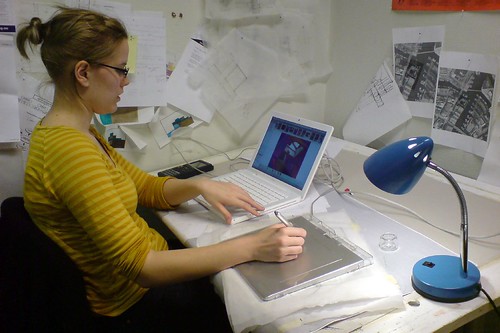 Lars Kristian Flem via Compfight
Lars Kristian Flem via Compfight
Working for free isn’t the ideal scenario, but young professionals may decide it’s worth the lack of monetary pay in order to gain experience and build a portfolio. If you’re thinking about working for free, consider a few suggestions that will help you protect yourself while building a professional reputation.
Do Set Boundaries and Guidelines
One of the biggest challenges freelancers face, in both paid and unpaid gigs, is the ability to set clear boundaries and stick to them. It’s common for employers to take advantage of such situations, expecting more and more work with no increase in pay. If you’re not getting paid, you’ll have to be especially careful to outline exactly what work will be done for free and how many revisions will be made. Once you start adding on responsibilities, it becomes hard to draw the line, so get things straight up front.
Don’t Take on Too Much
When just starting out, it may be tempting to take on anything and everything offered in order to prove yourself. However, when working for free you should be mindful about how much responsibility you accept. If you know a project will take up a lot of time or involve areas where you lack experience, think twice about accepting them. Not only do you want to leave a good impression of yourself and your skills, but you also want to leave room for paying work or school.
Do Act Like a Professional
Although you aren’t receiving monetary compensation, you should still take the work seriously. Communicate with the client, stick to a reasonable timeline, and stay organized. A good impression could lead to more lucrative opportunities later.
Don’t Seem Desperate
Desperation puts you in a vulnerable position when negotiating, because the other party assumes you’ll take anything. Although you may not be negotiating pay, you’ll still want to show you have standards and limits regarding projects. Don’t indicate that you lack other opportunities (even if you do) because the client may have less respect for your time and skills.
Do Get Something in Return
When working for free, you need to know what exactly you’re getting in return. For most it will mean more experience and beefing up a new portfolio. Get permission-in writing-to use the work for your portfolio. Also, ask for references and referrals if the client is satisfied with your work.
Don’t Continue to Work for Free
Make it clear to your current client that your free work is not long-term and that future clients (including those they refer) will have to pay. The last thing you want is to set the expectation that you’re not charging clients.
One frustrating aspect of being a creative professional is the pervasive expectation of free labor. A few non-paying projects can lead to better opportunities, but don’t be pressured into giving away your time and skills.